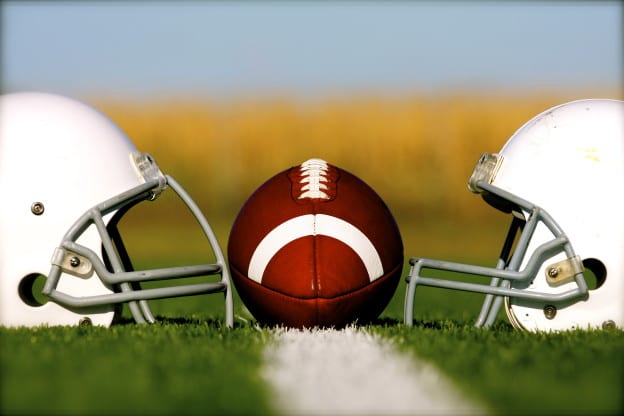Concussions: A Fact Sheet for Parents and Athletes

What is a concussion?
- A concussion is a traumatic brain injury (TBI) that interrupts normal brain function. A concussion occurs when there is a direct or indirect force to the head and often does not occur with a loss of consciousness. These injuries can lead to a wide range of issues, including academic difficulty, loss of playing time and in severe cases, permanent brain damage or retirement from athletic play.
What are the signs and symptoms of a concussion?
Signs and symptoms may include, but are not limited to:
Reported by Athlete:
-Headache
-Nausea or vomiting
-Balance problems or dizziness
-Double or fuzzy vision
-Sensitivity to light or noise
-Feeling sluggish, foggy, or groggy
-Confusion, concentration, or memory problems
Observed by others:
-Confusion about assignment, forgets plays, unsure of game, score or opponent
-Moves clumsily
-Loses consciousness
-Shows behavior or personality changes
-Appears to be dazed or stunned
-Cannot recall events prior to or after incident
-Confusion about assignment, forgets plays, unsure of game, score or opponent
-Moves clumsily
-Loses consciousness
-Shows behavior or personality changes
-Appears to be dazed or stunned
-Cannot recall events prior to or after incident
What to do once a concussion has been diagnosed?
If a concussion is suspected, the athlete is not permitted to return to activity the same day. The athlete must rest physically, and mentally. If a concussion is diagnosed or suspected, the patient should restrain from taking any pharmacological agent that may mask the underlying symptoms (e.g. headache), unless directed by physician.
*It is imperative that the athlete implements “brain rest”; actions such as those listed below may exacerbate the symptoms and delay recovery. Any action that increases symptoms should be discontinued.
Athlete Should Limit:
- Watching television / movies
- Exercising
- Social Media
- Use of cell phone (texting, playing games)/Computer
- Reading
- Studying
When should my child return to school/work/activity?
Sometimes symptoms may worsen while trying to concentrate at school and/or work. Any activity that increases symptoms should be discontinued until symptoms resolve. If schoolwork is causing or exacerbating symptoms, a discussion may be warranted between parents/guardian, physician, and school/work personnel to decrease workload until resolution of symptoms.
- The athlete shall remain at rest until they are asymptomatic. Once the athlete is asymptomatic at rest, they must follow up with a doctor of medicine (M.D.), doctor of osteopathy (D.O.), or a licensed athletic trainer before getting clearance to begin a gradual return to play (RTP) with an appropriate medical professional.
- Final written clearance from the medical professional shall be obtained before the athlete engages in any unrestricted or full contact activity.
What if symptoms worsen?
If the athlete begins to experience any significant worsening of the following symptoms after a concussion, they should be immediately taken to the hospital:
- Worsening headache
- Not waking up
- Repeated vomiting
- Seizures
- Numbness/weakness in extremities
- Increased confusion
- Difficulty walking
IF YOU HAVE EXPERIENCED AN INJURY THAT DOES NOT REQUIRE IMMEDIATE ATTENTION, WOULD LIKE TO SCHEDULE AN INJURY CONSULTATION, OR IF YOU HAVE GENERAL QUESTIONS REGARDING SPORTS MEDICINE CARE, PLEASE FEEL FREE TO CONTACT OUR SPORTS INJURY HOTLINE. THE CERTIFIED ATHLETIC TRAINER ON CALL WILL RECEIVE MESSAGES 7 DAYS A WEEK, AND WILL RETURN CALLS BETWEEN THE HOURS OF 8 AM AND 7 PM. CLICK HERE TO DOWNLOAD A COPY OF OUR SPORTS INJURY HOTLINE CARD.